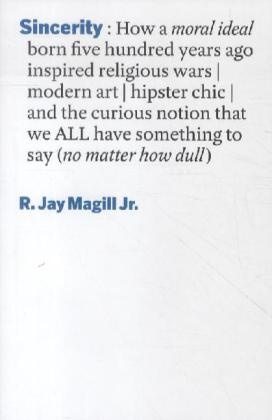Read more
Informationen zum Autor R. Jay Magill, Jr. is an independent scholar living in Berlin, where he works for the American Academy as a writer and editor, as well as a host of a radio program on NPR Worldwide. He is the author of Chic Ironic Bitterness , published in 2007, and from 1999-2005 was an editor, staff writer, and then Executive Editor of the National Magazine Award winning DoubleTake Magazine . During that time, Magill was also a teaching fellow at Harvard University, for which he received the Derek Bok award. He has written for, among other publications, the New York Times , Wall Street Journal , Atlantic Monthly , Foreign Policy , American Prospect , Der Spiegel , and Print ; and as an illustrator he has produced scores of political cartoons and caricatures for a variety of newspapers, periodicals (e.g. The Believer ), posters, and books (e.g. The Ultimate Guide to the US Economy ). Since 2005 he has been a staff illustrator at the political bimonthly The American Interest , in Washington, DC. Klappentext People have long been duped by "straight-talking" politicians, confessional talk-show hosts, and fake-earnest advertisers. As sincerity has become suspect, the upright and honest have taken refuge in irony. Yet our struggle for authenticity in back-to-the-woods movements, folksy songwriting, and a craving for plainspoken presidential candidates betrays our longing for the holy grail of sincerity. Bringing deep historical perspective and a brilliant contemporary spin to Lionel Trilling's 1972 Sincerity and Authenticity, R. Jay Magill Jr. argues that we can't shake sincerity's deep theological past, emotional resonance, and the sense of conscience it has carved in the Western soul. From Protestant theology to paintings by crazy people, from French satire to the anti-hipster movement, Magill navigates history, religion, art, and politics to create a portrait of an ideal that, despite its abuse, remains a strange magnetic north in our secular moral compass. Zusammenfassung A cultural and intellectual history of sincerity! from its emergence during the Protestant Reformation to its present incarnations and adversaries. ...

